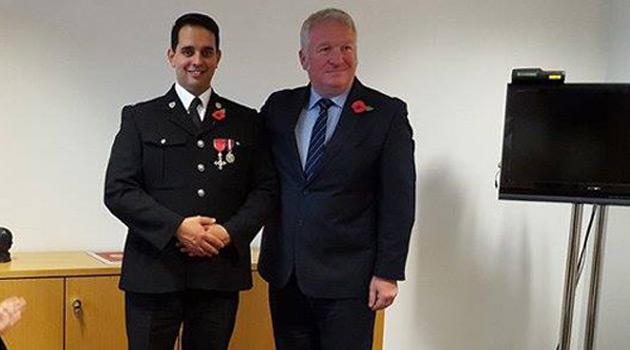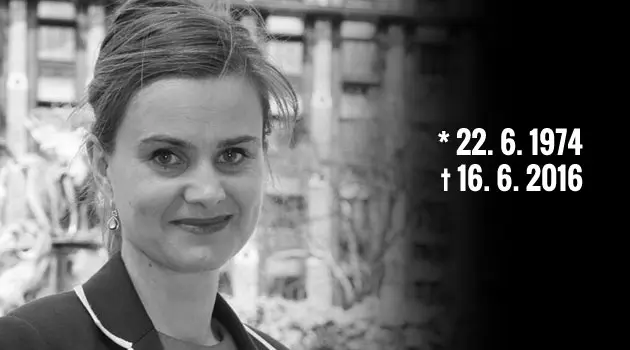Czech and Slovak citizens living in Peterborough, England have been discussing the EU referendum a lot in recent weeks, and many are concerned about what it will mean for them. That’s according to Petr Torák, a Romani man from the Czech Republic who has been serving on the Peterborough police force for 10 years in a part of the country where, according to polls, proponents of Brexit may achieve a resounding victory.
The town of about 160 000 is just an hour by train from cosmopolitan London and very close to the university town of Cambridge. Despite that proximity, however, it could not be more different from those cities.
While the residents of both Cambridge and London are clearly in favor of remaining in the EU, Peterborough reflects the concerns that many rural people have as a consequence of immigration, primarily from the newer EU states. According to the YouGov market research firm, it is the second most Euro-sceptic town in the country.
Peterborough changed after former communist countries joined EU
After the entry of the postcommunist states into the EU in 2004, thousands of people headed to Peterborough to work primarily in the farms around the town or in the food production factories and to perform other kinds of manual labor. Even though Peterborough, just like the rest of the country, is growing and has low unemployment, immigration from Central and Eastern Europe has altered the town in a way that many residents do not like.
Just a few minutes’ walk from the town center with its cathedral on display is the slightly tatty shopping street of Lincoln Road, which is lined not just with small shops selling goods from Asia, but also with Polish grocery stores, Portuguese cafés and Lithuanian hairdressers. The older generation of Britons has seen dramatic changes during the past 15 years, Torák told the Czech News Agency.
“The entire area has changed beyond recognition,” the police officer said. Many Britons perceive that as something they are unable to assimilate.
According to Torák, those Britons believe it would be better if there were not as many foreign nationals in the country because it would make life easier. Many foreign nationals travel to the UK for a brief time to make money and then return to their home countries.
“Mainly the younger [foreign nationals] have no relationship to the local community. That becomes visible – the gardens are not kept up and there’s a lot of noise when many young people are living together in the same house,” the police officer said.
“Neighbors don’t know each other at all. Fifteen years ago the English knew who their neighbors were, and not just the Britons, but the Pakistanis and people from various other countries also. There were neighborly ties that today have absolutely disappeared. Many immigrants do not speak English and cannot talk to their neighbors,” he added.
Torák said most of his colleagues at work are in favor of leaving the EU. “The English people who are somehow connected to the Czech and Slovak community, my friends who have Czech partners – they want to remain in the EU. Younger English people in general are for the EU, they see the advantages of travel,” he said.
Immigration has not impacted crime
The police officer noted that immigration has not impacted the crime rate one way or the other. Compared to the year 2006, when he began his service, there has not been a drastic growth in crime.
Torák said that crime in Peterborough is not related to perpetrators’ ethnic or racial origins. The main problem is in community coexistence, which is not related to where people come from, he said.
Thursday’s referendum has reportedly been constantly discussed among the immigrants from the Czech Republic in recent weeks. Torák said he gets several phone calls a day about it when he walks down Lincoln Road and many people are asking him about it.
“They are asking whether it will take a week, a year, or two years before the authorities begin sending people back to their home countries, whether they will send everybody or only those people who do not work and commit criminal activity,” he said. “Those who vacation in the Czech Republic or Slovakia are asking whether the borders will close. That, of course, is not true, but many people are concerned about it anyway.”
The police officer says he, too, has begun to wonder what the UK leaving the EU would be like. “I have my life here now, I’m used to it. To pack my bags and go to a home where I de facto have nothing, that’s an alarming idea… However, I don’t think that will come to pass… Maybe they will institute a visa or something like that, but anybody who works here has nothing to fear,” he said.
People from the Czech Republic who already have British passports or who own homes in the UK are reportedly not concerned. “Some of my Czech friends with British passports are even voting for Brexit,” Torák said, adding that dissatisfaction with EU immigration policy is the reason.
Torák has received an MBE from the Queen for his service on the local police force and his work for the Romani community. He has not yet applied for a British passport, even though he could after the years he has spent in Britain, so he will not be able to vote on Thursday.
Despite that, when asked how be believes the referendum will turn out, his answer is clear. “I believe we will remain,” he said.
Polish priest praying for Great Britain to remain in the EU
Polish priest Adam Sowa, who leads the local parish in the Church of All Saints, is of a similar opinion. He says his congregation is praying for the referendum to produce a vote to remain.
“This is an extraordinarily important vote and I am concerned about what might happen if Britain were to leave the EU,” he told the Czech News Agency. In his view the country must build bridges with the EU, not erect barriers to it, because the dream of its founders was peace and solidarity.
About one-third of Sowa’s congregation is British and Irish, with two-thirds coming from the rest of the world, the priest told the Czech News Agency. The anniversary mass in the local cathedral features 50 national flags flying and up to 1 500 people in attendance.
Sowa says the presence of people of various religions in Peterborough does not cause problems. Coexistence is peaceful there between those who are Catholics, Hindus, Muslims and Protestants.
Conservative MP Stewart Jackson is in favor of Brexit, though, as might be expected, and told the Peterborough Telegraph that “we must take back control over our country… protect our borders, have a fair immigration system based on points, and deport criminals…”. The imam of the local mosque, Abdul Choudhuri, is in favor of the UK remaining in the EU, but Jayshree Mehta, a member of an Asian community organization, said he is “strongly convinced we should leave the EU in order to get control back over our borders and immigration… uncontrolled migration drains national resources and threatens safety… I say this as an immigrant,” he told the Czech News Agency.
Even in Peterborough, though, the campaigns on both sides of the issue have quieted down after last Thursday’s murder of Labour MP Jo Cox, who led a campaign for remaining in the EU. Everyday life carries on, with little on the streets to show it is on the threshold of a referendum that will be crucial.
Flags in front of the town hall were flown at half-mast. At a ceremony to remember the murdered MP, local councillors stood holding lighted candles.

